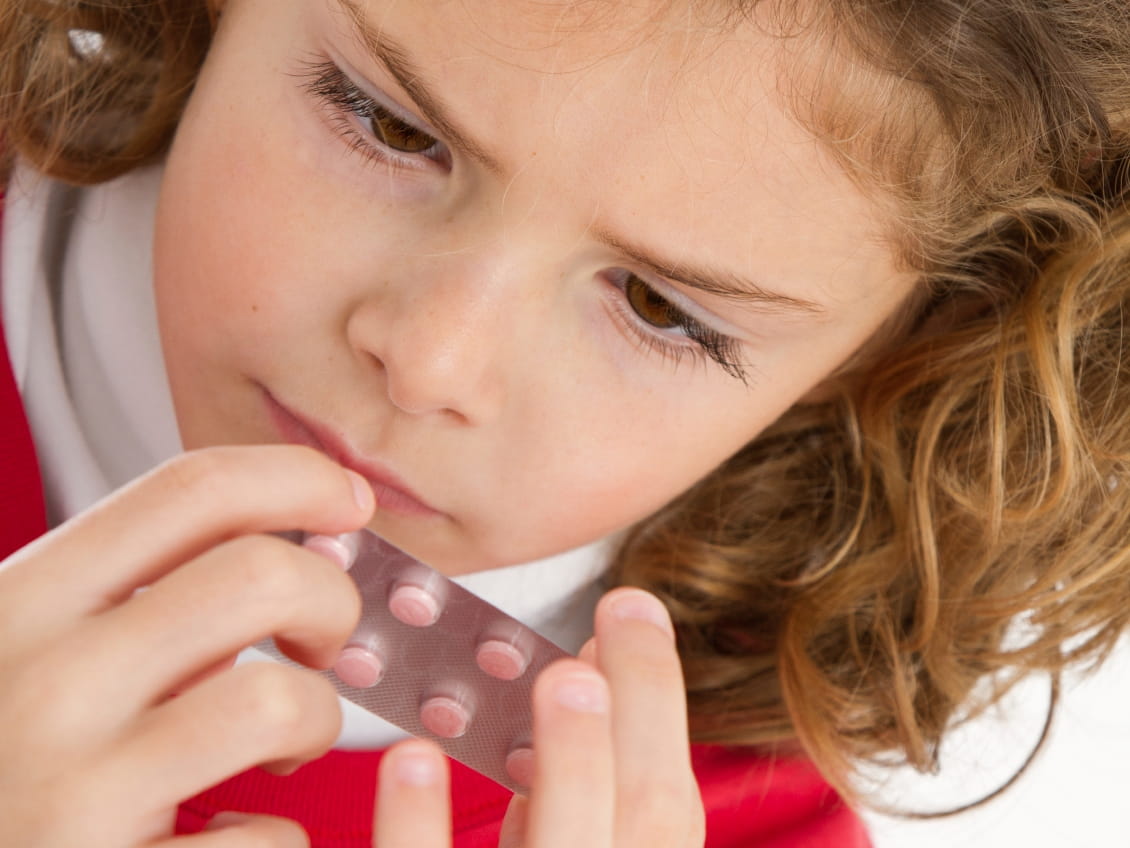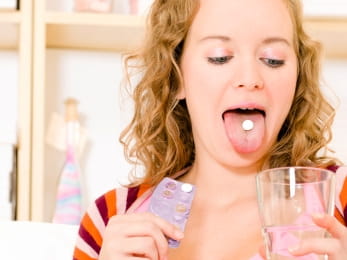Teaching Children to Take Medicine

The Bottom Line
At some point, children will be old enough to take their own medicines. Teaching children to take medicine safely involves supervision; teaching children when to take medicine; and teaching children how to take medicine.

The Full Story
Is it time to teach your child to take medicine? The Food and Drug Administration (FDA) has tips for parents whose children are ready to learn about taking medicines safely.
First, adult supervision is important for children of every age. When they're young, you teach children to take medicine ONLY from a trusted adult. As they get older, teach them to get permission from a parent or other adult before taking medicine.
Teach them how to read a medicine label.
- Prescription labels tell who the medicine is for. Stress that everyone should take their own medicine ONLY. Don't take someone else's medicine, even if your symptoms seem the same. Also, never share your own medicine with someone else.
- Prescription labels also tell how much to take and how often.
- Over the counter (OTC) medicines have "drug fact labels". Teach children to choose the right medicine. Take the correct amount, only as often as the label states.
- Compare medicine labels. Some medicines with different names have the same active ingredients. Taking both medicines together can lead to an overdose.
Teach children how to measure liquid medicines. Use a special measuring device - cup, spoon, or syringe. Ordinary household spoons and cups are not accurate for medicines.
If children make a mistake with their medicines, you can use the webPOISONCONTROL® online tool for guidance or call Poison Control for advice at 1-800-222-1222. Both are available 24 hours a day. Teach teens to use the webPOISONCONTROL® online tool for guidance or to call if they have a question about medicine they've taken. They can call Poison Control if they have a question about a medicine they are going to take, too.
Rose Ann Gould Soloway, RN, BSN, MSEd, DABAT emerita
Clinical Toxicologist
Poisoned?
Call 1-800-222-1222 or
Prevention Tips
Teach children:
- How to read a medicine label.
- How to measure liquid medicines.
- What to do if they make a mistake with medicines.
This Really Happened
A 12-year-old girl was injured while playing sports. She took an Aleve® (naproxen) 220 mg tablet, but her pain persisted. While her mom was checking with the pediatrician to ask if the child could take some ibuprofen also, the child took ibuprofen 200 mg on her own.
Her mom called Poison Control. Fortunately, no problems were expected this time. Both medicines could cause stomach upset, irritation, and other problems. Poison Control recommended waiting 8 hours before taking further doses of either medication; then, the child should take only one of them.
For More Information
More information is available from the FDA:
Poisoned?
Call 1-800-222-1222 or
Prevention Tips
Teach children:
- How to read a medicine label.
- How to measure liquid medicines.
- What to do if they make a mistake with medicines.
This Really Happened
A 12-year-old girl was injured while playing sports. She took an Aleve® (naproxen) 220 mg tablet, but her pain persisted. While her mom was checking with the pediatrician to ask if the child could take some ibuprofen also, the child took ibuprofen 200 mg on her own.
Her mom called Poison Control. Fortunately, no problems were expected this time. Both medicines could cause stomach upset, irritation, and other problems. Poison Control recommended waiting 8 hours before taking further doses of either medication; then, the child should take only one of them.
